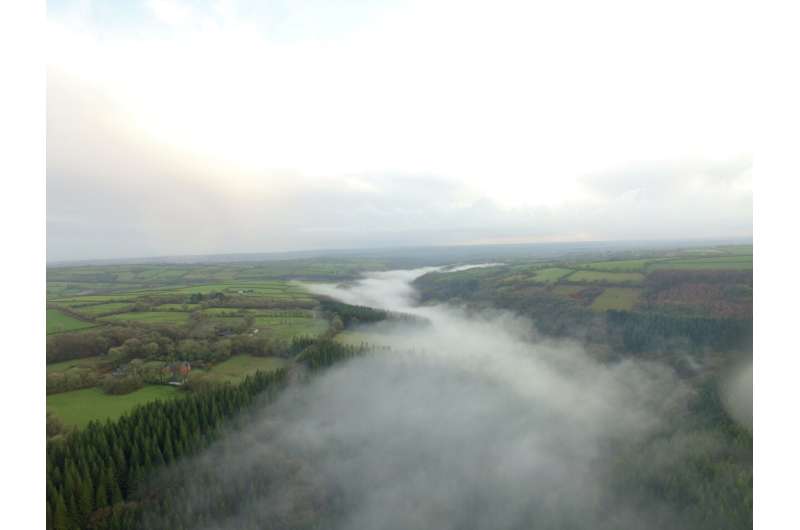Key moment in the evolution of life on Earth captured in fossils
Originally published by Curtin University, on January 15, 2024
The Welsh countryside near the Coed Cochion Quarry, where the fossils were found. Credit: Curtin University
Curtin-led research has for the first time precisely dated some of the oldest fossils of complex multicellular life in the world, helping to track a pivotal moment in the history of Earth when the seas began teeming with new lifeforms—after 4 billion years of containing only single-celled microbes.
The research paper, "U–Pb zircon-rutile dating of the Llangynog Inlier, Wales: Constraints on an Ediacaran shallow 1 marine fossil assemblage from East Avalonia," appears in the Journal of the Geological Society.
Lead author Ph.D. student Anthony Clarke, from the Timescales of Mineral Systems Group within Curtin's School of Earth and Planetary Sciences, said to determine the age of the fossils, researchers used volcanic ash layers like bookmarks in the geological sequence.
"Located in the Coed Cochion Quarry in Wales, which contains the richest occurrence of shallow marine life in Britain, we used outfall from an ancient volcano that blanketed the animals as a time marker to accurately date the fossils to 565 million years, accurate down to 0.1%," Clarke said.



Comments
Post a Comment